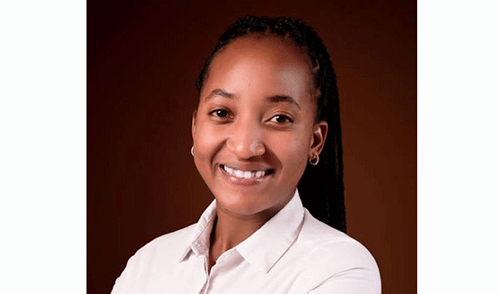Shola Lyomba
Wandalika Kambala
The quality of universal inner-party campaigns and intra-party democracy has declined over the years, and become tainted with malpractice and internal fighting for internal party positions that sometimes leads towards divisions and breakaways from parties. This has not only distorted the idea of inner-party politics, but goes as far as affecting the quality of representation for social, political and economic outcomes.
Almost all parties hold internal and inter-party campaigns to determine their leaders, but we argue that such campaigns are always subject to manipulation, draconian culture, anti-democracy and tainted with extreme factionalism. We, however, observed the opposite with the recently-concluded Swapo Party 2022 congress’ internal party campaigns. The Swapo Party intra-party campaigns kicked off at the beginning of September 2022, where about nine long-serving members of the party were vying for the top positions of the party, and others to form part of the party’s central committee.
At the genesis and launch of the internal party campaigns by his Excellency Dr Hage Geingob, the party president made it clear that the rules of the campaign are that candidates are to campaign honestly, and to “play the ball and not the man”. His Excellency went further to advise that candidates are not campaigning against enemies and adversaries, but are rather campaigning to articulate to the masses and appeal to the masses as the best suitable candidates to lead the party. With the recent frenzy surrounding the party’s politburo, central committee and the inner workings of the party, it goes without saying that the expectation was for the internal campaigns to be marred by public spats, and unheralded bravado innuendos exchanged between candidates and their loyalists, resulting in the miscarriage of democracy, further divisions within the party and new factions. This was, however, the opposite, with the party president and many long-serving members of the party imploring all the candidates and their supporters and sympathisers to remember longstanding principles of Freedom, Solidarity and Justice as the values the party stands for, where party members are free to vote for candidates of their choice, must stand in solidarity with their fellow party men and women, and remember that we must all strive for justice for our party and people.
The internal campaigns can, therefore, be said to have been premised on the contestation of political ideologies, visions and strategies. The main aim of the internal party campaigns was for candidates to introduce themselves to the 2022 congress delegates, as well as present their ideas and capabilities in respect of the offices they are vying for. This was exactly what took place in all 14 regions, where candidates vying for positions and delegates to the 2022 congress were under one roof, and discourse was allowed in order to ensure that the ideas of the candidates were transmitted well in advance to the voting members of the 2022 congress.
Despite the critics around the process employed by the party and the opinions around how the process would have manifested a similar outcome of the 2017 congress, which seemingly created the Team Harambe and Team Swapo slates, it is arguable that this process safeguarded the democratic process within the Swapo Party by ensuring that individual candidates with far deeper pockets do not have an unfair advantage in terms of organising public engagements. Regional visits were arranged in a manner that allowed all candidates to address delegates and present their visions and aspirations for the party on the same day at the same venue. This encouraged democracy and choice amongst delegates, based on the contestation of ideas that allows them to make an informed decision as it relates to the future leadership of the Swapo Party.
The just-concluded campaign exercise further promoted a greater sense of political tolerance by bringing comrades together during the internal campaigns, regardless of who they have chosen to support, under one massive rally every Wednesday and Saturday. The engagements ensured that there is a balance struck between contestation and the battle of ideas, which represents a natural and encouraged part of any democratic institution. It further demonstrated that comrades are all from the same political party, and they are allowed to disagree in the interest of the party. This means that while the majority of the people rule in a democracy, the rights of the minority must be protected at all costs. This exercise allowed there to be greater consensus amongst comrades.
Looking away from the positive records made by the party in terms of intra-party contestation, there are still some areas of concern and improvement. The question on the monitoring and evaluation mechanisms that the party has put in place to ensure that the approach to intra-party democracy actually achieves the objectives it was designed for needs to be answered for the next Swapo Party congress. The party administration did a commendable job in ensuring that the intra-party campaigns were undertaken successfully, fairly and peacefully. One could even presumably suggest that the wounds and harm of the 2017 congress were undone. This can definitely be charged to the work and efforts of the Swapo Party secretary-general’s office, which has set a standard on how to rebuild political institutions, post-conflict.
Pending, however, is a comprehensive explanation on how the office navigated the possible conflict of interest, seeing that the secretary-general herself was a candidate. It’s convincing that once these questions are answered, the following method of transferring leadership within political parties may become ideal for most parties to take lessons from and employ such methodology. Equally so, as young people, we are inspired to continue ushering in this peaceful democratic process. This process further encourages young political participation from young people, as it is seen to be more pragmatic andtransparent.


